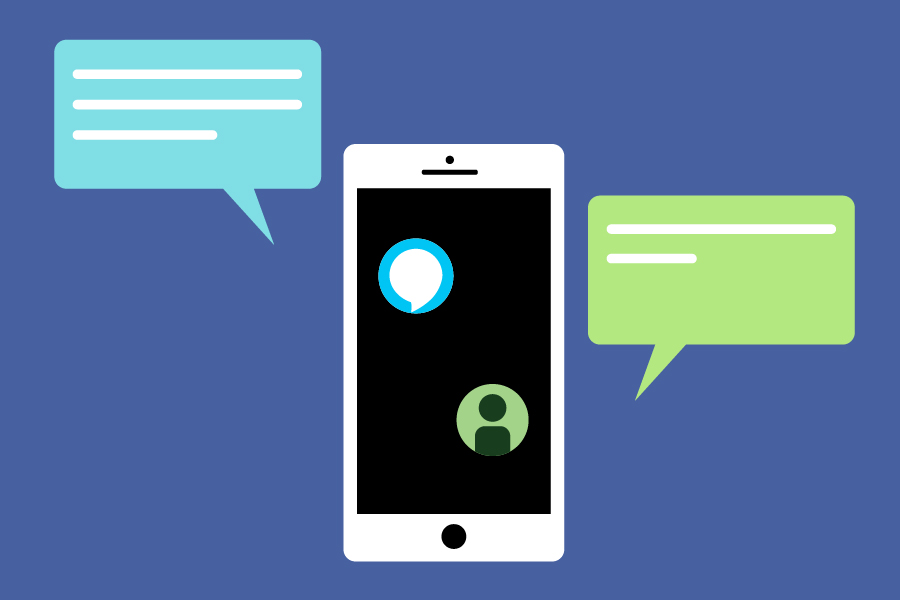
UC Davis students build improved social bot
Currently, most chatbots are task-oriented. They can answer questions or complete a task, but they can’t necessarily hold a long conversation. Team Gunrock, a team of UC Davis students selected to compete in Amazon’s 2018 Alexa Prize Challenge, wants to change that.
“We are hoping to build a social bot that is different from the traditional ‘task-based’ bot,” said Arbit Chen, a first-year computer science graduate student. “We are not building a bot to open a music player; instead, it should have the ability to find some topics and chat with people for minutes.”
The goal of the project is to build the best conversational dialogue bot by looking at the coherence of the response, end-to-end dialogue flow and the length of the conversation itself. To meet this goal, the team is designing a personalized dialogue bot that can provide valuable insights through an entire conversation. The social bot will be judged on its ability to converse and engage with people for 20 minutes.
“The best dialogue agents provide a balance between capability from task specific questions and answers and non-task compliant responses that advance the conversation,” said Kevin Jesse, a first-year computer science graduate student. “Currently many dialogue bots are focused on specific tasks by redirecting requests to different submodules. This makes the conversation choppy and answer-driven. We are hoping to improve this balance between task specific and advancing the dialog with submodules like our ‘social’ bot.”
This experience gives the team members valuable insight into what it’s like working on a large team, where intra-group communication can be a challenge.
“The most valuable thing that I had with this challenge is the experience to cooperate with a big group with a diverse background,” said Mingyang Zhou, a first-year computer science graduate student. “Each one of us will need to be responsible for some subsystems in the chatbot, and we all need some help from each other in order to accomplish this big project together. Communicating with different group members who have different backgrounds requires us to spend time learning about what they work on and how their work will affect ours.”
In May, the team will receive customer feedback on the bot it has created. The bot will then be judged by an Amazon panel and Amazon Alexa customers in July, after which two social bots will make it through to the final. The winning team will receive a $500,000 prize and $1 million research grant for its university.
Written by: Kriti Varghese — science@theaggie.org



